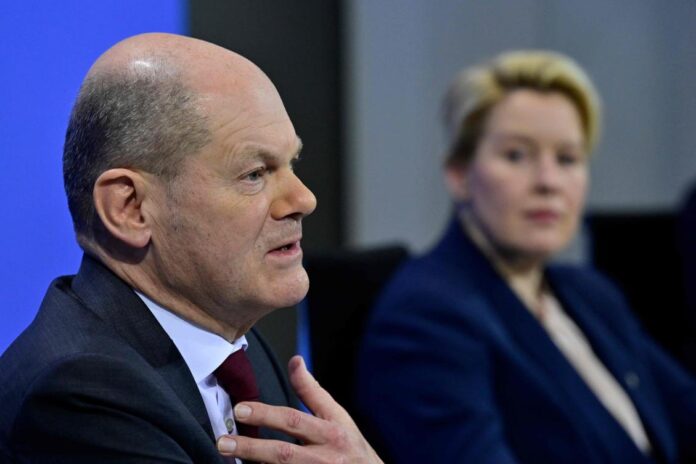BERLIN: Germany’s leaders agreed Friday to toughen requirements for entry to restaurants and bars, and decided to shorten quarantine and self-isolation periods as the omicron variant spreads fast through the country.
Chancellor Olaf Scholz and the 16 state governors built on restrictions introduced just after Christmas that limited private gatherings to 10 people and effectively shut nightclubs.
People have already been required for some time to show proof of full vaccination or recovery to enter restaurants and bars — as well as many nonessential shops, theaters and cinemas.
Friday’s decision calls for the requirements to be ratcheted up for restaurants and bars across the country. Customers will have to show either that they have received a booster shot or provide a negative test result on top of proof that they have been vaccinated or recovered.
“This is a strict rule … but it is a necessary one,” Scholz said.
Scholz and the governors also agreed to shorten quarantine or self-isolation periods that are currently as long as 14 days, something that many other countries already have done.
People who have received boosters will no longer have to go into quarantine after having contact with coronavirus cases, Scholz said. All others can end their quarantine or self-isolation period after 10 days if they don’t have — or no longer have — symptoms; that can be cut to seven days with a negative test.
“These are strict rules, but they are pragmatic and mean an easing of the current rules,” Scholz said.
The COVID-19 situation in Germany has been foggy for the past two weeks because of very patchy testing and slow reporting over the holiday period. Official figures, which authorities have acknowledged don’t yet show the full picture, have shown a steady increase in the infection rate over the past week.
On Friday, the national disease control center, the Robert Koch Institute, reported an official rate of 303.4 new cases per 100,000 residents over the past seven days. Over the past 24 hours, 56,335 new cases were reported.
In its weekly report on Thursday, the institute said that omicron accounted for 44.3 percent of cases tested for variants in Germany last week, up from 15.8 percent the previous week.
Germany’s vaccination campaign is regaining speed after the holidays. As of Friday, 71.6 percent of the population had received a full first vaccine course and 41.6 percent had had a booster shot.
Sign in
Welcome! Log into your account
Forgot your password? Get help
Password recovery
Recover your password
A password will be e-mailed to you.

